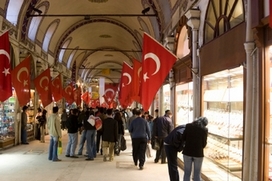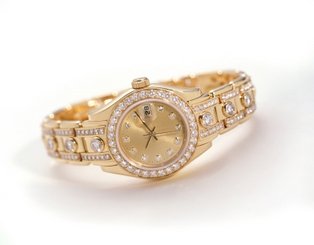|
African Gold
African Gold mining dates back several thousand years in West Africa. The gold was mined in alluvial placers (fine particles of elemental gold found in river sands) in ancient times. It was separated by washing the river sand away leaving only the denser gold particles. It was then, melted and made into coins, jewelry, statues, weapons, goblets and other decorative objects. Before the 10th century, early explorers saw the West African leaders wearing gold ornaments of incredible wealth and were eager to establish trade with them. By the 10th century, purchasers bought gold and gold dust from Ghana, Mali, and Songhai and imported the gold to Europe by caravan. The Portuguese explorers discovered alluvial gold deposits in the mouth of the Pra River in 1471, and the West African coast quickly became a favorable destination for Portuguese entrepreneurs and gold dust buyers. They were soon followed by the English, Spanish, Dutch, Danish and French mining companies and alluvial gold buyers.
Gold Shops in Istanbul Throughout the coastal region, placer deposits were dispersed in river gravel. From 1471 to 1880, it was estimated that more than 14.4 million ounces, producing more than 443 tons of gold, which lead the area to be named, the Gold Coast. In the 15th and 16th centuries, the gold trade was quick and active, but, declined in the 18th century during the slave trade. The gold trade was revived in the 19th century after slavery was abolished and commercial gold mining was established. The Gold Coast was declared an official colony of Great Britain between 1901 and 1957. Great Britain invested a great amount of capital into building up the region with railways, ports and hydroelectric projects to facilitate mining and transport of alluvial gold and gold dore' (bullion) to buyers in Europe. West Africa is currently one of the fastest growing gold producing regions in the world. The driving force behind foreign and local exploration in the region are the gold purchasers. This region contains some of the largest undeveloped African gold deposits in the world. Numerous junior and independent gold mining exploration companies have produced significant amounts of alluvial gold dust and gold dore' (bullion) in Ghana and Mali over the last ten years.
Gold Rolex with Diamonds The other West African regions such as: Liberia, Guinea, Sierra Leone and Senegal are moving into the gold mining industry as well. Government support, good geology, modernization of mining codes, and technological improvements in the region have created a boon for alluvial gold dust and gold dore' (bullion) buyers.
Although, gold mining in West Africa have had a tremendous growth in the business of mining, there are children miners, some 100,000 to 250,000 children are recruited to work in the gold mines in Senegal. Children as young as 4 years to 13 years old work in these gold mines in Senegal, as printed in the New York Times, August 11, 2008. As the story goes, these hard-working miners include thousands of children, they work long hours at often dangerous jobs in hundreds of primitive mines scattered through the West African bush. The Associated Press visited six of these bush mines and interviewed 150 children miners in three West African countries. Itinerant traders bought African gold mined by these children as the agency's journalists watched, and through interviews and customs documents, they tracked gold from those mines on a 4,800 - kilometer or 3,000 - mile journey to Mali's capital city and then on to Switzerland, where the gold entered the world market. These bush mines are in Africa, South America and Asia, there are thousands, and they are no more than holes in the ground. The three countries together produce a fifth of the world's gold, according to the United Nations reports. Wherever, you find bush mines, these reports and mine experts say, you also find child labor. Children mining African gold is in these regions. From African Gold Back To African Diamonds
|







